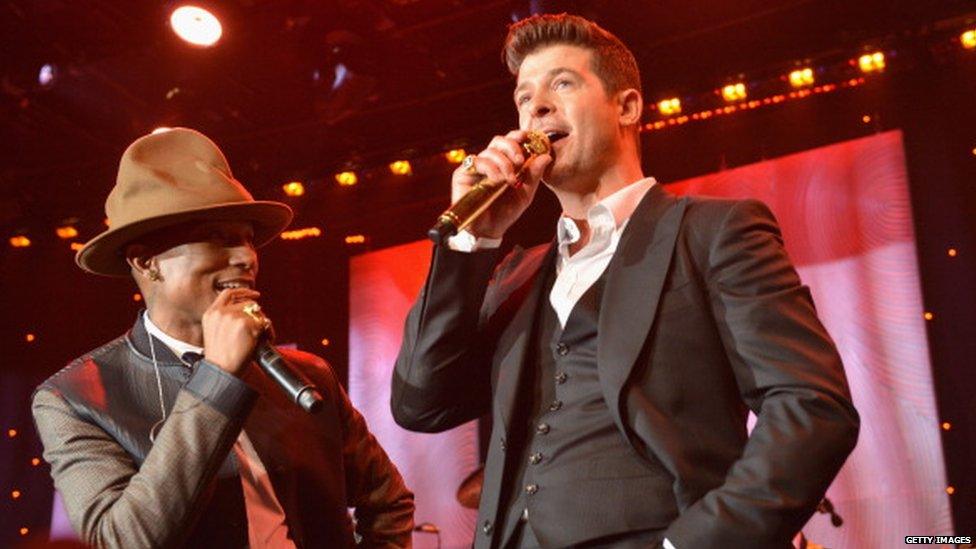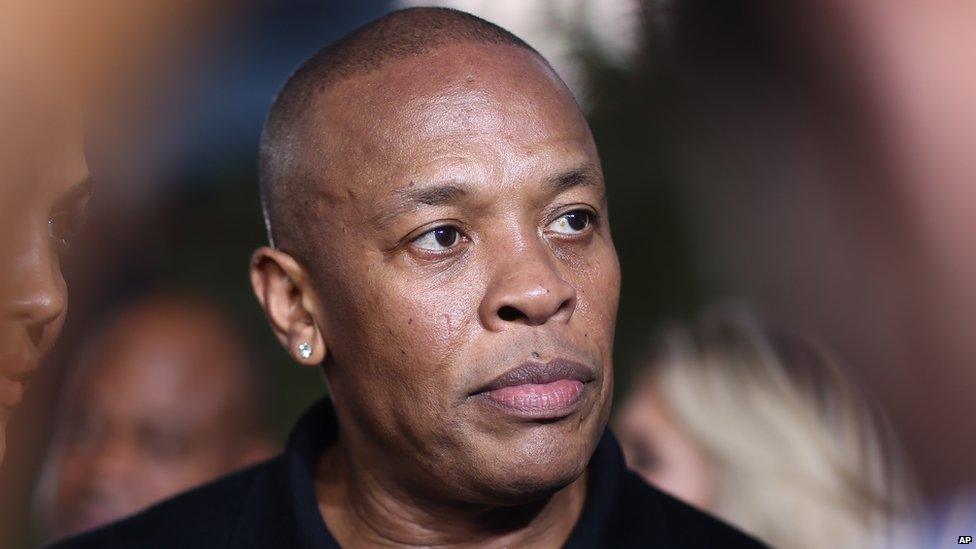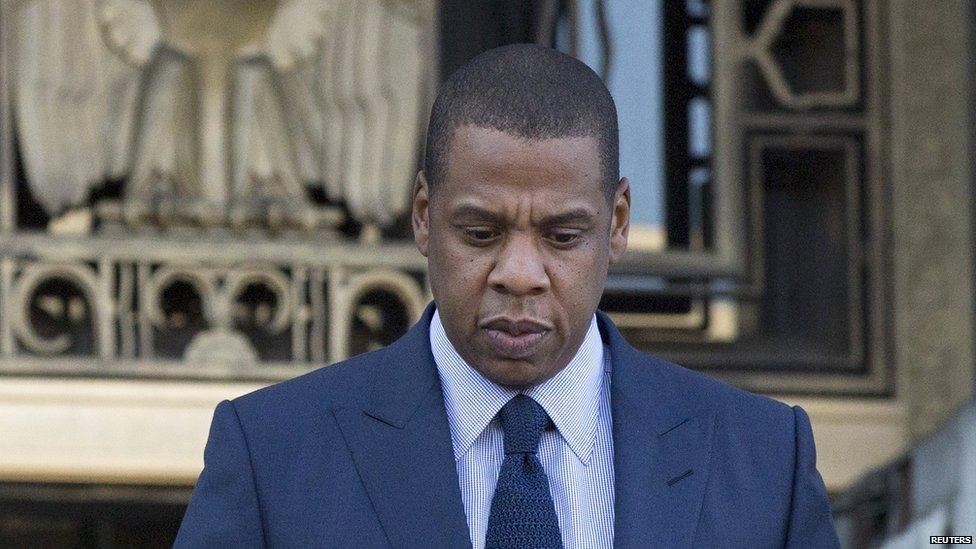Music industry 'paranoid' after Pharrell Williams, Robin Thicke Blurred Lines case
- Published

Blurred Lines made more than $5m (£3m) for Pharrell Williams (left) and Robin Thicke
People in the music industry are "getting paranoid about infringing copyright" after it was ruled that Blurred Lines "copied" another song, a leading forensic musicologist has told Newsbeat.
Peter Oxendale, who worked on the case, says his workload has increased so much he's employed his son Jamie to help.
In March, a jury ruled Pharrell Williams and Robin Thicke had infringed Marvin Gaye hit Got To Give It Up. Gaye's family was awarded $7.3m (£4.8m) in damages.
Peter says the verdict has made the whole music industry "worried".
The case is still not fully resolved after an appeal from Pharrell's team but Oxendale says the initial judgement was "appalling".
"The Blurred Lines outcome was an appalling decision. It was a jury trial in Los Angeles and they can always be difficult because a jury is asked to decide on technical facts.
"And often they are overwhelmed by the personalities involved.
"And in this case in Blurred Lines the verdict of the jury, in my opinion, was wrong on the facts. There's no science to it.
"The songs... they have different structures, they have different underlying harmonies, they have different vocal melodies, they have entirely different lyrics.
Listen: Blurred Lines verdict - How influence was ruled as stealing, external
"In fact, there are no two consecutive notes in the vocal melodies or even the bass lines that occur in the same place for the same duration.
"They are, by definition, different songs."
He said that the songs are similar in "one respect... they have similar feels, similar vibes, similar grooves, but that's not enough for an infringement".
"A jury can say the sky is green but that doesn't mean it is."
Pre-emptive strikes
Oxendale says that he is now having to do more work with what he calls the "pre-emptive strike" with big labels and well-known artists.
He can't name those labels or artists for legal reasons.
But a pre-emptive strike is where he is asked to listen to music ahead of its release to try to determine whether the artist will be accused of copyright infringement.
He explains: "Some new groups may have taken a reference from another track and they come to me and say, 'Are we too close?'
"And I'll advise if they are [too close] and perhaps suggest some changes.
"And when they get it right and in a position that I think they're not infringing copyright, I'll often write a report.
"Sometimes it's sound recordings which people sample, and put sound recordings into other recordings."
Reference track
Just in case you didn't know, a reference track is basically where artists or labels will take inspiration from another track. But it's a "flavour" not a "copy".
"Coincidence" is a defence in law, says Oxendale, but says that it's hard to argue.
"As long as your new track doesn't materially represent the original track, you can be inspired by [it] just so long as it doesn't actually become a variation of it."

The hip-hop battle
Oxendale has been involved in a number of high-profile cases.
He won a case against Dr Dre in a jury trail in 2003.
"It was on behalf of Minder Music for a song called Backstrokin for the Fat Back Band. It had been appropriated in a song called Let's Get High by Dr Dre.
"We were in court for about two weeks and at the end of the day the jury found in my client's favour and awarded $1.5m (£985,000) to Minder Music. Dr Dre lost big style."

Jay Z leaves a United States District Court after opening statements and jury selection in downtown Los Angeles
Yesterday Jay Z, whose real name is Shawn Carter, and hip hop producer Timothy "Timbaland" Mosley appeared in court in Los Angeles over the copyright to the sample used in Jay Z's Big Pimpin track.
Jay and Timbaland are among the defendants named in a 2007 complaint by the nephew of late Egyptian songwriter Baligh Hamdy, who claims the rapper had used his uncle's composition without permission.
Follow @BBCNewsbeat, external on Twitter, BBCNewsbeat, external on Instagram, Radio1Newsbeat, external on YouTube and you can now follow BBC_Newsbeat on Snapchat